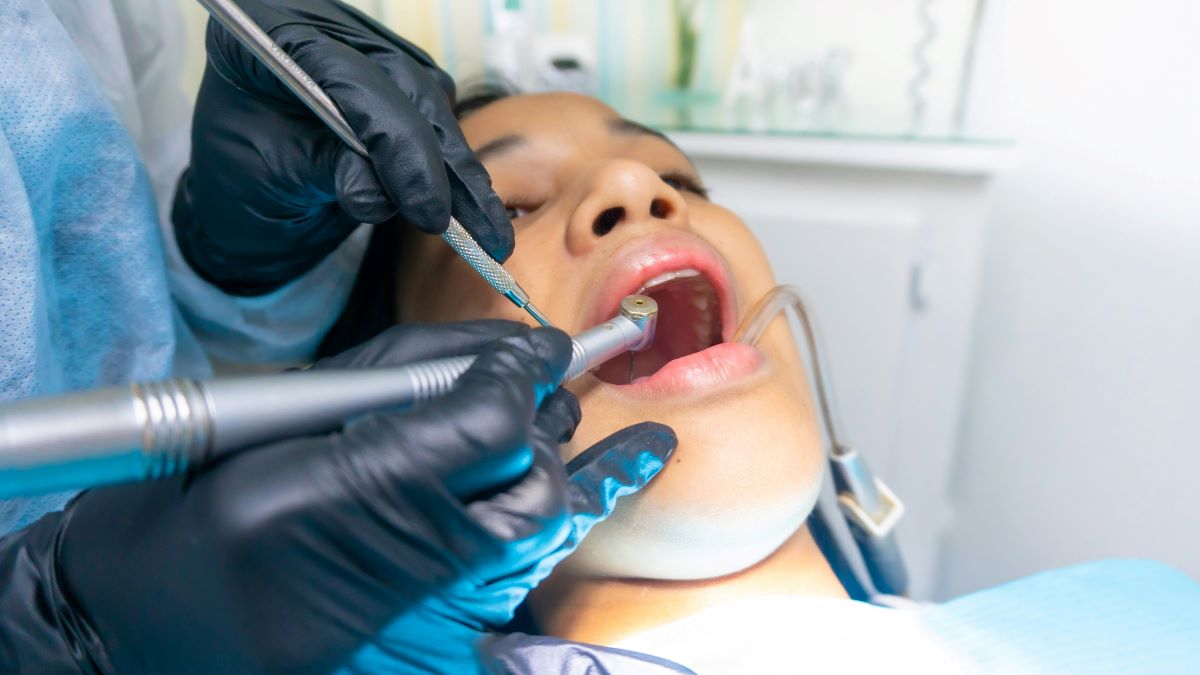
In this article, we'll explore seven essential skills every dental assistant needs to thrive in their profession.

In this article, we'll explore seven essential skills every dental assistant needs to thrive in their profession.
Communication lies at the heart of every successful dental assistant. From interacting with patients to coordinating with colleagues, effective communication ensures smooth workflow and patient satisfaction. Dental assistants must be able to convey information clearly, whether it's explaining procedures to patients, relaying messages to the dentist, or updating medical records accurately. Moreover, they should possess active listening skills to understand patient concerns and address them appropriately. By fostering open communication, dental assistants contribute to a positive and supportive environment within the clinic, enhancing the overall patient experience.
Additionally, communication extends beyond verbal interactions. Non-verbal communication, such as body language and facial expressions, plays a crucial role in building rapport with patients and creating a comfortable atmosphere. Dental assistants who master the art of communication can establish trust with patients, alleviate anxiety, and facilitate effective teamwork within the dental practice.
In a bustling dental office, organization is key to maintaining efficiency and preventing chaos. Dental assistants must juggle multiple tasks simultaneously, from scheduling appointments to preparing treatment rooms and sterilizing equipment. Strong organizational skills enable them to prioritize tasks effectively, manage their time efficiently, and ensure that each patient receives the attention they deserve.
Furthermore, attention to detail is essential in maintaining a sterile and safe environment. Dental assistants must adhere to strict protocols for infection control and sterilization to minimize the risk of cross-contamination and ensure patient safety. By staying organized and meticulous in their approach, dental assistants contribute to the smooth functioning of the clinic while upholding the highest standards of hygiene and professionalism.
3. Clinical Skills While dental assistants may not perform procedures like dentists, they play a vital role in assisting during treatments and procedures. Therefore, a solid foundation in clinical skills is essential for success in this role. From preparing materials and instruments to assisting with dental procedures, dental assistants must be knowledgeable about various dental treatments and techniques.
Moreover, proficiency in dental radiography and chairside assisting is crucial for providing efficient support to the dentist. Dental assistants should be familiar with different types of dental x-rays, understand proper positioning techniques, and ensure accurate imaging for diagnosis and treatment planning. Additionally, they must possess excellent hand-eye coordination and dexterity to assist the dentist seamlessly during procedures, contributing to the overall success of each treatment.
Dental procedures can be daunting for many patients, often evoking feelings of fear or anxiety. Empathy and compassion are therefore indispensable qualities for dental assistants. By demonstrating empathy, dental assistants can ease patients' fears, reassure them, and provide emotional support throughout their dental visit.
Moreover, effective patient care goes beyond emotional support; it encompasses a range of responsibilities, including patient education and post-treatment instructions. Dental assistants should be able to educate patients about oral hygiene practices, dental procedures, and preventive care measures, empowering them to take control of their dental health. Additionally, providing clear and concise instructions for post-treatment care ensures optimal outcomes and promotes patient satisfaction and compliance.
In the dynamic world of dentistry, change is inevitable. Dental assistants must be adaptable and flexible in their approach to accommodate evolving technologies, procedures, and patient needs. Whether it's learning new software for managing patient records or adjusting protocols in response to public health guidelines, adaptability is essential for staying relevant and effective in the dental field.
Moreover, dental assistants may encounter unexpected challenges or emergencies during procedures, requiring quick thinking and problem-solving skills. The ability to remain calm under pressure and adapt to changing circumstances is invaluable in such situations. By embracing change and demonstrating flexibility, dental assistants can navigate the ever-changing landscape of dentistry with confidence and competence.
Dentistry is a team-oriented field where collaboration is essential for providing comprehensive patient care. Dental assistants work closely with dentists, hygienists, and administrative staff to ensure seamless coordination and delivery of services. Effective teamwork fosters a supportive environment where each member contributes their expertise to achieve common goals.
Furthermore, clear communication and mutual respect are the cornerstones of successful teamwork. Dental assistants should be able to collaborate effectively with colleagues, respecting their roles and responsibilities while offering assistance whenever needed. By fostering a culture of teamwork and collaboration, dental assistants contribute to a harmonious work environment and enhance the quality of patient care.
Professionalism is the hallmark of a competent dental assistant. It encompasses integrity, reliability, and a commitment to ethical standards in all aspects of practice. Dental assistants must adhere to professional codes of conduct, maintaining confidentiality, and respecting patient privacy at all times.
Moreover, professionalism extends to personal appearance and demeanor. Dental assistants should present themselves in a neat and professional manner, instilling confidence and trust in patients. Additionally, they should demonstrate a strong work ethic, taking pride in their responsibilities and striving for excellence in every task they undertake.
In conclusion, dental assisting is a multifaceted profession that demands a diverse skill set and a commitment to excellence. From communication and organization to clinical proficiency and empathy, dental assistants play a vital role in ensuring the smooth operation of dental practices and the well-being of patients. By honing these essential skills, dental assistants can excel in their profession and make a positive impact on the lives of those they serve.
For those interested in pursuing a career as a dental assistant or seeking to enhance their skills in the medical field, consider exploring opportunities at Best Bootcamps. With immersive and accelerated education programs, Best Bootcamps offers a pathway to success in critical fields such as medical assistance, providing students with the training and expertise they need to thrive in their careers. Visit Best Bootcamps today to embark on your journey towards a rewarding and fulfilling dental assistant career.